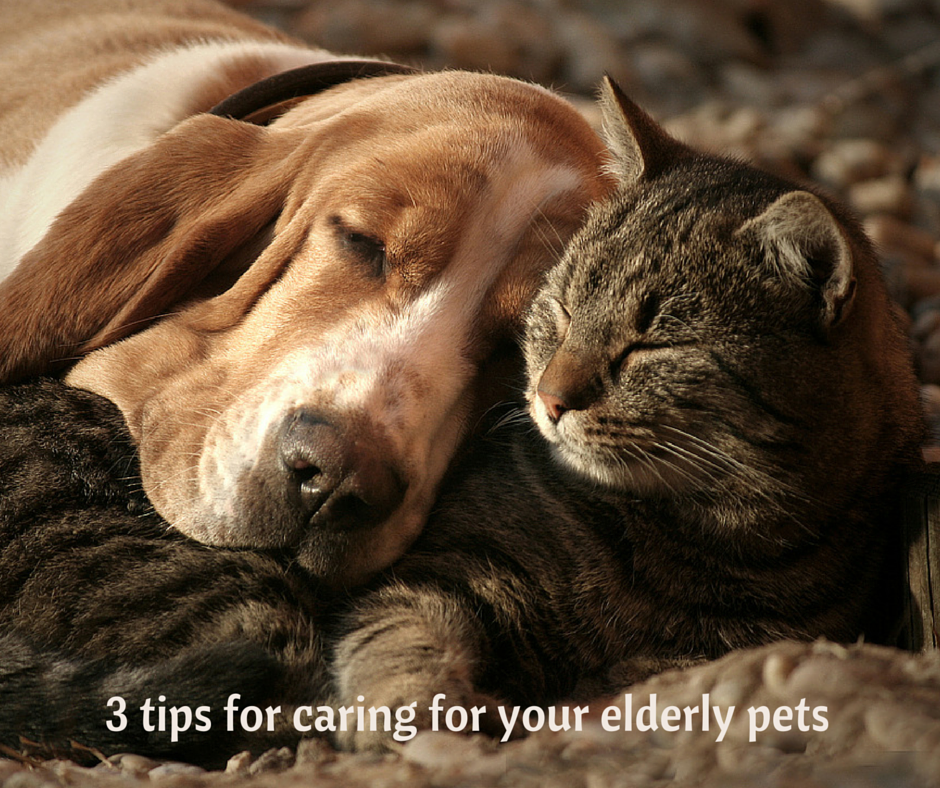
Our elderly pets, or Golden Oldies as I like to call them, have been on my mind this week. That’s partially because I’m running my Golden Oldie Pet Love Challenge live this week. Between joining in with the exercises and admiring how others are doing (with clearing their limiting beliefs about their pet’s ageing process and tuning into their pet’s needs and desires), I took a few moments to wonder what my favourite tips are when it comes to caring for our Golden Oldies.
So, from my experiences with my Sally dog, who is now 19 and my Leo cat who made it to 14, here are my thoughts.
1. Give them time and space.
As our pets age, they can slow down.
It can take them longer to wake up and to get up and going.
They may walk at a slower pace and prefer to walk shorter distances, especially if they have arthritis.
They may also take longer to respond if you call them or to make decisions.
I like to give them extra time and space when they need it.
That means time to rest uninterrupted if they want and space to go on walks at a pace and length that suits them (which means no longer bringing Sally into towns where people move fast along the street).
If you also have young dogs, it can sometimes be a challenge to accommodate all of their needs on the same walk.
An elderly cat may not like to be disturbed mid nap, even if it is for cuddles.
2. What will make their life easier?
This varies for each individual case.
So, really the best tip I can give is to be observant and to ask yourself what will really help them?
It could be something practical, like a ramp to the door or car, if they are struggling to jump up and down.
It could be a softer bed or comfy rug.
For cats it could be useful to have an extra litter tray to ensure they can always get to one quickly.
It could be feeding them separately if other pets are taking advantage of them eating slowly or being more picky with their food.
It could be ensuring they are kept out of potentially stressful situations, such as being around young children or dogs they are not familiar with.
3. Remember to have fun.
Just because a pet is old and no so active or mobile as they once were, it doesn’t meant they don’t want to have fun.
What do they still love to do? Be sure to do those things and to keep creating happy moments and happy memories.
There may be new toys and games that can keep them stimulated. Get creative.
Also, as mentioned in the video, please, please, clear any worries about their ageing process and any upset about their mortality.
Here are 2 videos, using my favourite technique, EFT tapping, to help you do just that.
This one is for worries about their ageing process: https://youtu.be/h3BstB80gBA
This one is for the question of how much time do we have left with them? https://youtu.be/2ANLLuSQlQ0
Once you clear those worries it’s much easier to enjoy every moment with your Golden Oldie.
It can also be fun to appreciate your role of caregiver, if they need extra attention and care as they age. They give us so much love, it’s nice to give some extra love and tlc to them at this time.
I also hope it goes without saying to ensure that they have the best nutrition possible and regular veterinary check ups (sometimes what we think as signs of ageing, or even behavioral issues could be related to late onset health conditions).
Video
Over to you.
What is your best tip for keeping your elderly pets happy?
And what lengths will you go to ensure their comfort?
For example, because Sally doesn’t easily climb stairs or jump high, I changed my sleeping arrangements to sleep downstairs when she’s with me and have the bed low to the ground, so she can easily get on and off the bed at night and still sleep at the end of the bed, like she always has done.
I’d love to hear your stories in the comments below.
Thank you.
P.S. It’s not too late to take part in the Golden Oldie Pet Love Challenge. Find out more about it here.


Sorry, comments are closed for this post.